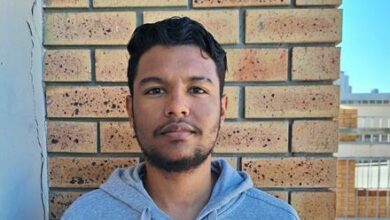Independent Electoral Commission (IEC) gears up for the 2024 elections
The Independent Electoral Commission examined the impact of disinformation and misinformation on the electoral process and what the role of each stakeholder is.

As South Africa nears its 2024 national and provincial elections, is democracy under threat due to the rise of misinformation and disinformation?
The Independent Electoral Commission of South Africa (IEC) hosted a multi-stakeholder dialogue to address the issue on April 8 at Radisson Blu Sandton.
IEC’s chairperson, Mosotho Moepya said, Mahatma Gandhi’s words ‘The truth never damages a cause that is just’ had a significant impact on many African leaders and scholars, during the struggle for independence.

“There came a time in the life of a nation when the truth must be spoken without fear or favour and for us, this is the time as we approach the 2024 elections,” he added.
“From our vantage point as the IEC, there is an urgency and responsibility in the fight against the triple ills of misinformation and disinformation. Our democratic process is under threat from society, the dangers of the triple ills look large, casting a shadow over the integrity of the electoral processes and the foundations of our democracy.”
He noted that the triple ills were not buzzwords or abstract concepts, but insidious and forced the IEC to look at the truth when distorted and fight for the truth to prevail.
“The triple ills manipulate public information and opinion, undermine the legitimacy of our democratic institutions, sow seeds of doubt, breed distrust, and foster division among citizens.”

Media Monitoring communications manager, Nomshado Lubisi-Nkosinkulu highlighted that democracy was under threat and political analysts called the upcoming elections period as one of the most crucial, potentially aggressive elections periods in our country’s young democracy.
Lubisi-Nkosinkulu defined disinformation, as “false, inaccurate, or misleading information that has been designed, presented, or promoted to cause public harm intentionally and deliberately. Harm in this regard referred to elections and could be prevented or harm the conduct or outcome”.
She noted that disinformation always had a percentage of truth as it infiltrated an environment vulnerable enough to take everything at face value. Disinformation thrived on emotions whether it was fear, anxiety, or confusion.

Misinformation on the other hand is false and misleading content and contains some leaks, harassment, and hate speech.
Media Monitoring Africa established Real 411 in 2019 which is a platform where the public can report any disinformation and misinformation from any social media platform.
The platform was first trailed in 2019. Real 411 was run with the IEC in the lead-up to SA’s national elections in 2019.
Real 411 sought to ensure that:
- Key stakeholders were playing by the same rules (up to that point social media was generally playing by rules set beyond our borders.)
- There was a mechanism for the public to act against disinformation, thus empowering the public and citizens to act against disinformation thus helping to mitigate its impact.
- Real411 offered one central place for the public to report misinformation and disinformation regardless of the platform, and the IEC was able to deal with complaints across digital platforms.
The role of media and social media in ensuring accurate information is disseminated during the 2024 general election period. Traditional and social media are currently the biggest platforms that will be used to disseminate information to voters.

Chief legal council at Primedia, Tholoana Ncheke said in terms of partnerships, there is an institution called the National Association of Broadcasters that has been in existence for as long as the BCCSA – it is an industry body that provides us with a platform where we collaborate on various issues of public importance depending on the context.
“During Covid-19, we had several initiatives and one of them was for GBV and the purpose was to highlight the scourge of GBV. There was misinformation about Covid and we rallied through the platform to try and address the issues of misinformation around Covid and amplify the role of media as a source of reliable, credible, and accurate information.”
Ncheke highlighted that currently, there was an active campaign that spoke to the need to ensure that there was accurate information circulated and journalists put their hands on their hearts as media to ensure they disseminated credible information.
South Africa’s National Editor’s Forum (SANEF) executive director Reggy Moalusi said misinformation and disinformation were huge threats, “hence we continue to work with the MMA and IEC for collaboration. The job we aim to do as journalists are undermined by people who are working against that to tell a different story.”

Moalusi added that what continued to worry him was people who misinformed and disinformed on social media wanting to use the credibility of existing news entities to continue their agenda.
Meta Public Policy Manager, Duduetsang Makuse emphasised that Meta had policies in place which dealt with misinformation and disinformation.

“How this type of content is reviewed will be an internal and external process that includes fact-checkers. For misinformation, we follow a three-step approach: we notify the individual who posted the content, reduce the distribution of content, and disable the user if needs be and if the user continues to be flagged on the platform.”
The IEC’s chairperson concluded that the goal of the Electoral Commission, Information Regulator, Media Monitoring Africa and other stakeholders was to confront and eradicate these evils.
Related articles: National Children’s Theatre play educates teens on democracy





